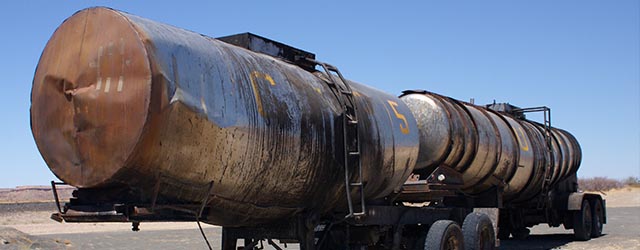In the wake of falling commodities prices, Africa’s largest and oil-rich economies are now in damage-repair mode.

Back To Special Issue
African nations, especially commodity-exporting ones such as oil-rich Nigeria and Angola, have seen revenues decline by more than 50% following the fall in oil prices. In August 2015, US oil prices hit a new, six-year low, coming in below $40 a barrel. Increased production in the US has not only affected prices but has also forced oil-exporting countries to look for new markets.
Consequently, many are struggling with dwindling foreign reserves, weakened currencies and internal deficits. But investors from Asia, Europe and the United States still believe in the African economy, as can be gauged by the interest they demonstrated in the $750-million eurobond sale in May—which was seven times oversubscribed—by Africa Finance Corporation. AFC invests primarily in infrastructure.
In Nigeria crude oil exports account for 70% of government revenues and 90% of foreign exchange earnings. As oil revenues sank, foreign exchange reserves fell, initially forcing the central bank to devalue the naira by some 22%. Additionally, the authorities introduced an order-matching foreign exchange platform. “This has resulted in much lower turnover in the foreign exchange market,” explains Samir Gadio, head of Africa Strategy, Standard Chartered. “In addition, the heavily managed foreign exchange stance has been associated with a significant US dollar demand backlog in the economy and persistent parallel market premium.” In the parallel foreign exchange market, which has a separate exchange rate to that of the official market, the local currency can be exchanged for about 224 naira to the dollar, well below the official rate.
For Angola, the impact of the decline in oil prices has been even more pronounced. Because oil accounts for 70% of taxes and as much as 95% of all export earnings, the decline in its price has forced the government to impose austerity measures. The decline is also expected to impact business over the next three years. On this basis, the African Development Bank has forecast a decline in Angola’s GDP growth to 3.8% this year, down from 4.5% GDP growth in 2014.
A TURNING TIDE

These developments have halted Africa’s growth spree, which began after the global financial crisis of 2008. The continent achieved an average yearly growth rate of 5.3% between 2010 and 2014, but the International Monetary Fund has warned that sub-Saharan African growth will decline to 3.8% this year, although it could inch up past 4.3% in 2016.
“The ongoing foreign-currency crisis in parts of the continent has slowed down the pace of Africa’s integration with global markets, and in some cases, such as Nigeria, [that integration process] has been completely reversed,” says Jan Dehn, head of research at Ashmore Investment Management in London.
In Nigeria, part of the fallout from lower oil prices has been a lowering of investor confidence in the sustainability of the current exchange rate, which has translated into large portfolio outflows and increased onshore dollarization, says Gadio. In response to the decline in revenues, the Central Bank of Nigeria devalued the naira on November 25, 2014, moving the midpoint of the official exchange rate band from 155 naira per dollar to 168. On February 25 this year, it raised the exchange rate to 199 naira per dollar and shut down the official foreign exchange window, directing users instead to channel their demands to the interbank market.
FURTHER DEVALUATION REQUIRED
In protest over Nigeria’s foreign-currency policies, J.P. Morgan decided to remove the country’s bonds from the Government Bond—Emerging Markets indexes as of the end of October, citing inadequate liquidity and transparency in the FX market. This came after most foreign investors had exited the Nigerian market in late 2014. Consequently, portfolio outflows this year have been more modest. Gadio estimates that foreign participation in Nigeria’s debt market is now probably in the mid-single digits, a substantial decline from a high of 27% in 2013.
The IMF says that embattled commodities exporters, including Nigeria, must weaken their currencies further to be able to absorb the shocks. Dehn agrees and points out why. “Currencies are an important part of the adjustment to lower commodity prices. In other words, currency weakness is not, per se, something that keeps investors out,” he says. This, he explains, is because the adjustment of the currency is part of an orthodox policy response that ultimately keeps credit healthy. Thus, he says, African countries that have resisted currency adjustment have quickly lost the trust of foreign investors.
Dehn believes the decline in commodity prices has caused considerable differentiation in investor sentiment toward African countries. Oil producers have been beaten up badly, while oil importers have benefited, he points out. Furthermore, among the oil producers, some have done better than others because they were well prepared and their policymakers responded judiciously to the shock.
Africa’s deficit in infrastructure provides a good opportunity for foreign investment to flow into the continent. The AFC eurobond experience confirms as much. The AFC deal represented the largest inaugural US dollar eurobond issue for any African financial institution, states Don Hultman, head of mining, energy and infrastructure lending at Standard Bank. Hultman says the deal also gave international investors the opportunity to buy a high-grade credit from Africa (AFC has the third-highest rating of any entity from Africa), as well as gain exposure to a number of countries and infrastructure projects across the continent.
We cannot continue to rely on the dollar for all major projects, and until local currencies are strong enough to support utility projects, we will have a challenge financing the number of projects needed.
~ Don Hultman, Standard Bank
But Dehn believes the global environment continues to make it difficult for Africa to attract institutional investment to its infrastructure sector. He points out that in 2015, the Chinese economy began to face more challenges, which may mean that China too will become less active in Africa. Dehn believes the biggest constraint to infrastructure investment in Africa is the quality of policy within Africa itself. “The world knows how to do things,” he says. “It is really just a question of putting in place the policy framework that allows infrastructure investment to go ahead. Africa can do it, if it wants to.”
Hultman notes there are a growing number of examples of countries that have unlocked significant private-sector financing for projects by establishing effective regulatory environments. But Africa should not depend only on external funding for its infrastructure deficit, he says. He argues that development of local currency pools of liquidity and capital will be critical to solving the financing gap for infrastructure. “We cannot continue to rely on the dollar for all major projects,” Hultman admits, “and until local currencies are strong enough to support utility projects, we will have a challenge financing the number of projects needed.”



